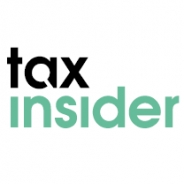
This article was written by Jennifer Adams for Tax Insider.
The question as to whether the letting of property is a trade or an investment has particular relevance currently because if deemed a 'trade' then a claim under the Self-employment Income Support Scheme (SEISS) whereby a taxable grant worth 80% of trading profits up to a maximum of £2,500 per month for the next three months.
The tests for trading in property are much the same as for any other trade. There is no definition in the legislation and therefore HMRC use the ‘badges of trade’ formula as a basis in identifying whether or not a trading activity exists. There are currently nine ‘Badges of trade’ have been developed by the courts. It is not necessary for the entire ‘badges’ to be present - the existence of one single‘ badge’ can be enough. Clearly some ‘badges’ carry greater weight than others, given differing circumstances.
The nine ‘badges of trade’ listed under HMRC’s BIM 20205 are:
- profit seeking motive
- number of transactions
- nature of the asset
- existence of similar trading transactions
- changes to the asset
- method of sale
- source of finance
- interval of time between purchase and sale
- method of acquisition
Using these ‘badges’ the following are possible areas of HMRC interest with particular reference to property transactions:
- profit seeking motive – did the owner originally intend to trade or were the transactions for investment purposes only?
- number of transactions and existence of previous similar transactions
- nature of the asset – what exactly was the character of the land, was it suitable for long-term investment or for immediate development?
- method of acquisition and source of finance – how was the purchase funded and under what terms if purchased via a loan?
Usually the distinction between dealing in property (trade) and investing is relatively straightforward: a purchaser buying to let out on a long term basis is an investor, someone buying property to refurbish then sell, whether resulting in a capital gain or not, will most likely be a trader - the main difference being intention. Where the intention is to develop the property, hold it to generate income from rental activities and achieve capital growth over a period of time, the tax treatment is more likely to be that of an investment. ‘Intention’ will therefore directly affect the tax treatment.
Profits from furnished holiday lets are always treated as a 'trade' for all taxes except NIC and IHT.



Please register or log in to add comments.
There are not comments added